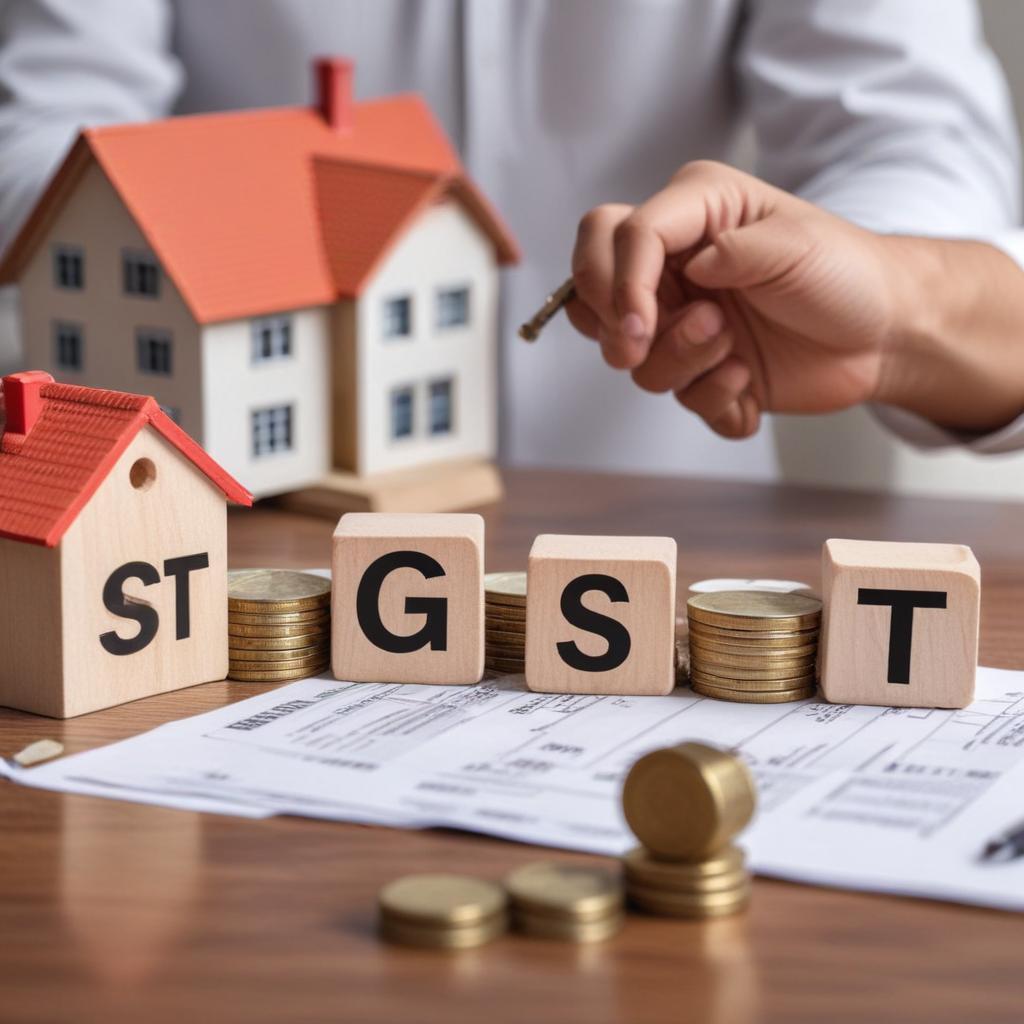GST in real estate- latest updates 2024
Tax is one of the most crucial parts of the real estate. One must pay the taxes related to the property and many mistakes on this can lead to serious legal proceedings and also can give your property a tag of “illegal”. GST (Goods and Services Tax) is another mandatory tax that a home buyer needs to pay. However, the amount of this tax depends on the type of property and many other things. As a veteran real estate company, Vinayak Realtech believes that informing our consumers about the legalities and other aspects of real estate is our duty. So, through this blog, today, we are going to elaborate on the factors related to GST in real estate.
What is GST on property?-GST in real estate
GST was introduced in 2017 by the Indian government to reduce the number of taxes and to make property buying simpler than before.
Before GST in real estate, a home buyer and a builder were bound to pay several taxes such as value-added, service, and central excise. These different types of taxes were increasing the burden on property purchasers. From the number of taxes, it is visible that the taxation of the properties was structurally complicated and less transparent.
Initially, the GST on property acquisition was 12% for non-affordable housing and 8% for affordable housing for premium residential buildings. The buyers were eligible for the input tax credit or ITC on the previously applicable GST rates. However, the whole tax system was revised in the 33rd meeting of the GST Council back in 2019. The new GST rate for purchasing affordable housing units is 1%, whereas it is 5% for non-affordable or luxury housing units without ITC.
Here, it is important to mention that you will be asked to pay GST only on the under-construction properties in India’s megacities in 2024. If you buy a completed project, you will not be required to pay any kind of GST because the project has received a certificate of completion from the appropriate authorities.
If you are the one who is planning to buy a flat in 2024, then you must look at the GST amount on flats in 2024.
GST on the purchase of a flat in 2024
| Residential property types | GST rate till March 2019 | GST rate from April 2019 |
| Affordable housing under construction | 8% with ITC | 1% without ITC
|
| Non-affordable housing other than under-construction | 12% with ITC | 5% without ITC
|
| For ready-to-move-in properties | No GST | No GST |
As the taxation system was revised in 2029, the government gave the option of choosing old or new rates for current projects back in 2019. Additionally, the government also informed that the new tax rate without input tax credit (ITC) will apply to all new projects.
How has GST reduced complications in taxation in real estate?
Completing a real estate project involves many layers of work and before 2017, the Indian government used to take taxes from each of the steps. Due to this breakdown of taxation, the cost of the whole project usually increased. Prior to the implementation of the GST, real estate developers were required to pay taxes such as:
- Value Added Tax (VAT)
- Central Excise
- Entry Tax
- LBT
- Octroi
- Service Tax, etc.
One should note that the home buyers were responsible for paying all of these taxes. Additionally, many dishonest builders used to manipulate the numbers of taxes to raise their property prices. Due to the complexity of the layers, it was difficult for an average home buyer to verify the claims of those dishonest builders and they were forced to pay a lot of extra money.
However, GST changed the whole game. Now anyone can verify the tax and can raise questions on extra price.
What are the types of state and central taxes that the GST absorbed?
The central and state taxes that the GST replaced when it went into effect in July 2017 are listed below:
Central taxes
- Excise Duty
- Customs Duty
- Special Additional Duty of Customs
- Service Tax
- Central Sales Tax
- Central surcharge and cess on supply of goods and services
State taxes
- State Value Added Tax
- Entertainment Tax
- Luxury Tax
- State Excise Duty
- State surcharge and cess on supply of goods and services
- Taxes on advertisement
- Purchase tax
- Taxes on lotteries, gambling, and betting
As a maker of residential apartments, most of our clients ask us what are the criteria that make a property affordable and bring under the 1% GST charge during the under-construction period.
The site qualifies as a project of affordable housing if-
| For metro cities, the property comes under affordable housing if- | Area of the under-construction house = 60 sq.m.The price is up to 45 lakh |
| For non-metro cities, the property comes under affordable housing if- | Area of the under-construction house = 90 sq.m.The price is up to 45 lakh |
Well, this is not all. There are a few more conditions that make a flat eligible for the 1% GST, and the conditions are:
The builder must buy 80% of the raw materials from a registered seller. However, if not, then the builder will be entitled to pay an 18% tax and obviously, the home buyer will be entitled to bear that burden too.
The 1 percent GST payable to affordable dwellings under development does not include an ITC. Therefore, the GST one pays while acquiring the property cannot be deducted from your income. Consequently, you will not receive the advantage of decreased yearly income tax on your income.
As stated in the beginning, as one of the most trusted builders of Kolkata, we believe that everyone should have a significant amount of knowledge before buying a property. It helps them to make an informed decision. So, let us inform the process of calculating GST.
Calculating GST on affordable property
| The cost of the property per sq. ft | Rs 6000 |
| GST on the affordable housing segment | 1% |
| GST value per sq. ft | Rs 6 |
| Price per sq. ft after the GST | Rs. 6006
|
Calculating GST on non-affordable property
| The Cost of the Property Per Sq. Ft | Rs 10,000 |
| GST on the Affordable Housing Segment | 5% |
| GST Value Per Sq. Ft | Rs 50 |
| Price Per Sq. Ft after the GST | Rs 10,050 |
Some common FAQs:
Has GST helped the real estate sector?
Definitely. GST has helped the real estate sector in many ways such as
It has reduced the complexity
It has reduced the burden of tax on home buyers
Has added more transparency. Now home buyers can calculate the tax on their own.
Is there any exemption in GST taxation?
Yes, the exemption is, that real estate developers are entitled to claim the Input Tax Credit on construction materials under the GST system. However, to get that, one needs to follow the below-mentioned steps:
Submit invoices/receipts of construction material
The developer must receive goods and services
Claims on personal use of goods and services will not be entertained
All pending dues must be cleared
GST must be filed accurately
Why are the ready-to-move flats out of GST?
One does not need to pay the 1% GST on the ready-to-move affordable flats because the property has already received the completion certificate. It means, the GST has been paid already and the project is verified. This section comes under Schedule III of the GST Act, 2017
Conclusion:
GST has been proven a boon for the real estate industry. Apart from reducing the cost price, it has added transparency to the whole process. Now a home buyer has the freedom to raise questions about unnecessary taxation claims of a builder. We hope that this blog will help you in calculating the tax amount of your property and will help you in identifying a dishonest dealer too.














Leave a Reply